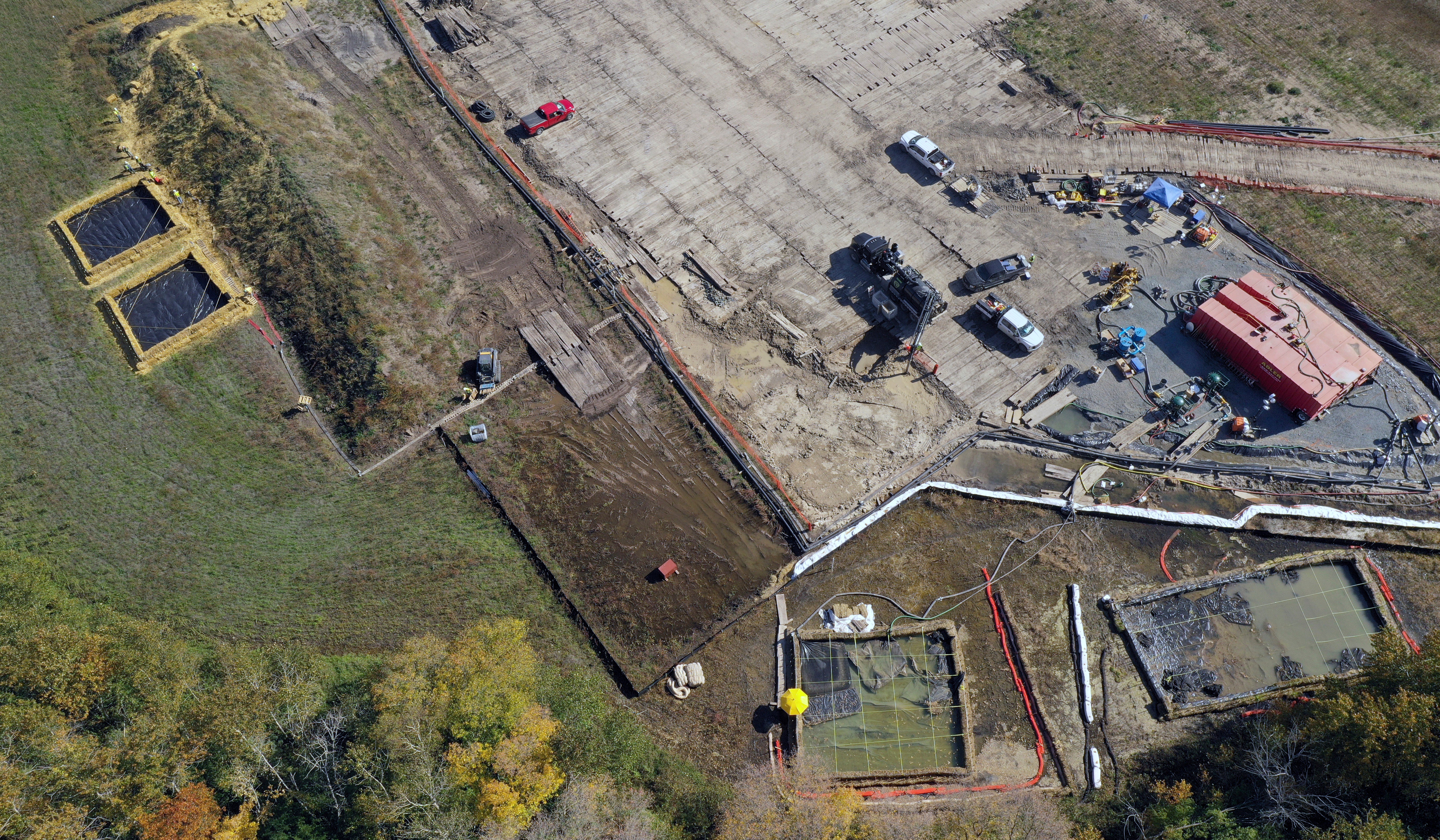Oil pipeline construction in Minnesota ruptured an aquifer. Officials say it’s the 4th time
A fourth aquifer breach has been confirmed in northern Minnesota stemming from a Canadian oil company's construction of an oil pipeline replacement in the region

Your support helps us to tell the story
From reproductive rights to climate change to Big Tech, The Independent is on the ground when the story is developing. Whether it's investigating the financials of Elon Musk's pro-Trump PAC or producing our latest documentary, 'The A Word', which shines a light on the American women fighting for reproductive rights, we know how important it is to parse out the facts from the messaging.
At such a critical moment in US history, we need reporters on the ground. Your donation allows us to keep sending journalists to speak to both sides of the story.
The Independent is trusted by Americans across the entire political spectrum. And unlike many other quality news outlets, we choose not to lock Americans out of our reporting and analysis with paywalls. We believe quality journalism should be available to everyone, paid for by those who can afford it.
Your support makes all the difference.A fourth aquifer breach has been confirmed in northern Minnesota stemming from a Canadian oil company’s construction of an oil pipeline replacement in the region, state officials said.
Officials with Enbridge Energy and the Minnesota Department of Natural Resources confirmed to the Minneapolis Star Tribune that the breach occurred near Moose Lake in Aitkin County. Officials said Enbridge is working to fix the rupture, in which the layer of earth above an aquifer is punctured, causing the water to leak to the surface and possibly introducing pollutants.
It’s the fourth confirmed breach along the Line 3 pipeline route, which started operating in the fall of 2021 and generated fierce opposition from environmental activists and Native American tribes. Last October, state regulators announced that Enbridge would pay more than $11 million for water quality violations and the three previous aquifer breaches.
An aquifer is a natural underground reserve of fresh water capable of being tapped by wells. Environmentalists say such groundwater reserves face a multitude of threats from human populations, including depletion from overuse, pollution from agriculture and septic systems and contamination from pipeline construction and spills.
Groundwater at the Moose Lake breach is flowing to the surface at about 10 to 15 gallons per minute, department officials said. That’s “considerably lower” than the rate at which groundwater initially flowed from the other three breaks, the agency said.
Enbridge will submit a plan to correct the Moose Lake area damage and will implement it when it’s approved, company spokeswoman Juli Kellner said in a statement. The aquifer breaches don’t involve the pipe itself, she said. It stems from sheet-metal piling driven into the ground used to reinforce the trenches that crews work in.